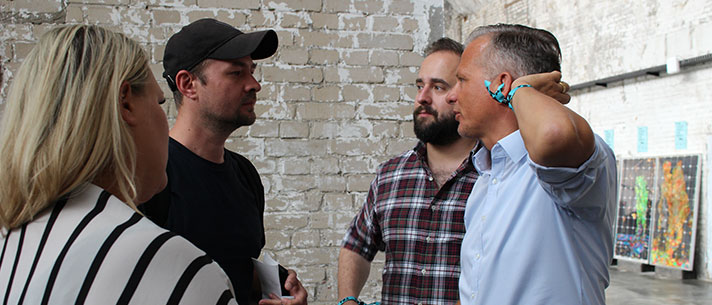Do you know about and are you using Google Trends? The service instantly shows how search queries change over time. This is particularly useful if you want to understand whether, when and where innovations are developing or demand is arising, in other words where trends are emerging from hype. Just try this with the term “financial inclusion”. Financial inclusion is defined as the availability and equality of opportunities to access financial services.
Google Trends shows very clearly that search queries for financial inclusion have increased worldwide since 2017 at the latest. But there are major differences. While even today the number of search queries in Germany is barely measurable, the situation is different in Africa where Google searches are very much on the rise. And now consider these results in the light of the emerging mini debate on the topic in German media. Lo and behold, we should not be surprised. You could summarize by saying once again it takes a shockingly long time before the market potential and especially the social relevance, in other words duty and obligation, are discussed. Specifically, the opportunity and duty of banks and fintechs to really make a difference with customer-centric innovation.
So what is the reality? According to studies and media reports, in Africa for example there are still very many people who do not have a bank account. On the other hand, very many Africans have smartphones. This is where technology comes into play. It is the key to financial inclusion. According to the Zenith Mobile Advertising Forecast, as of 2018, 66 percent of people worldwide have a smartphone and therefore access to the digital infrastructure that makes financial inclusion possible. Platforms such as the Fidor Operating System deliver the technology and the interface that enables transfers, for example, to be made easily and reliably. In addition to providing the technology, I believe we also need to offer our community opportunities to exchange experience and knowledge – in other words, to share our knowledge about how saving works, and what investment and financing opportunities there are.
Even if there are many voices that are very critical of financial inclusion, I see the provision of financial services to private individuals and businesses at an affordable cost as an opportunity for many people to gain financial independence. I think that this is not only a growing market, but also and above all an obligation on our industry to make a contribution – for an independent and better life. Because in my view one of the pillars of a stable society is a stable financial system. The financial crisis proved to us how distortions can have a lasting disruptive effect on societies. For me, a stable financial system goes hand in hand with a fair banking system where partners are on the same level and where it is not about winning as many customers as possible who generate as many fees as possible to deliver the greatest possible profits – costs should be within reasonable limits.
Our collaboration with the IFC in Africa and Latin America proves that financial inclusion works and that it stabilizes the lives of local people. The integration of more and more people in the financial system contributes to the growth of the local economy and also strengthens the national economy.



